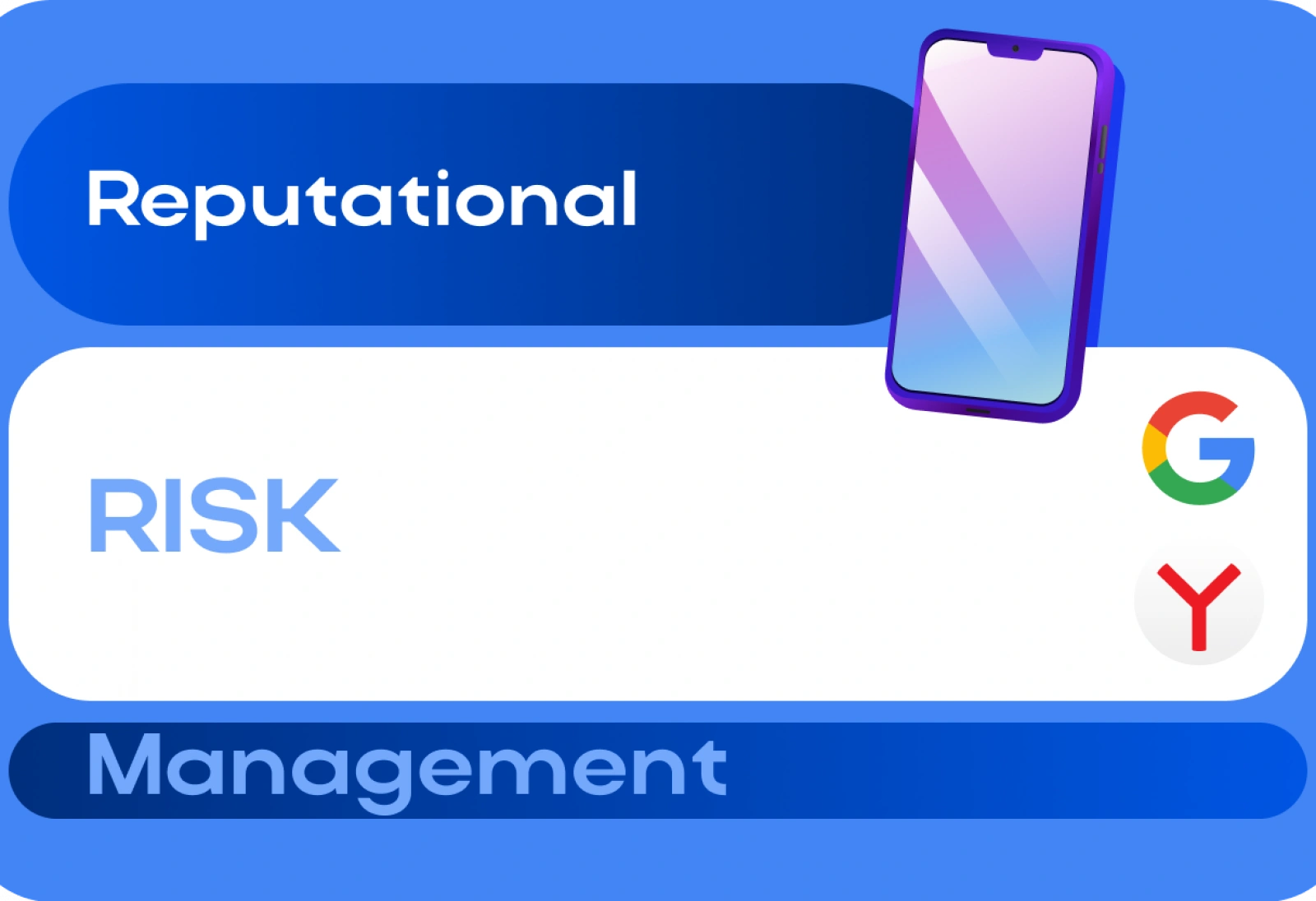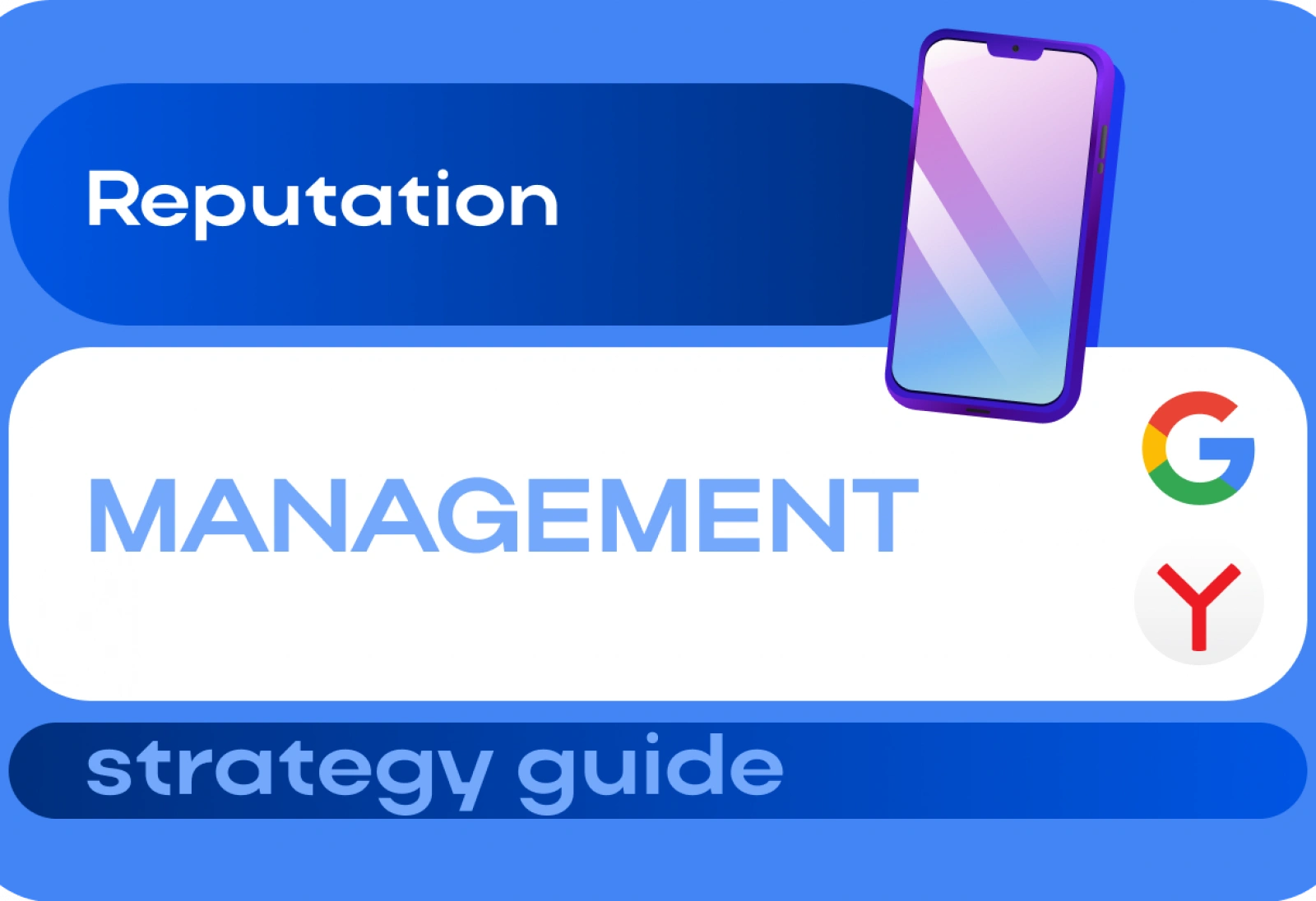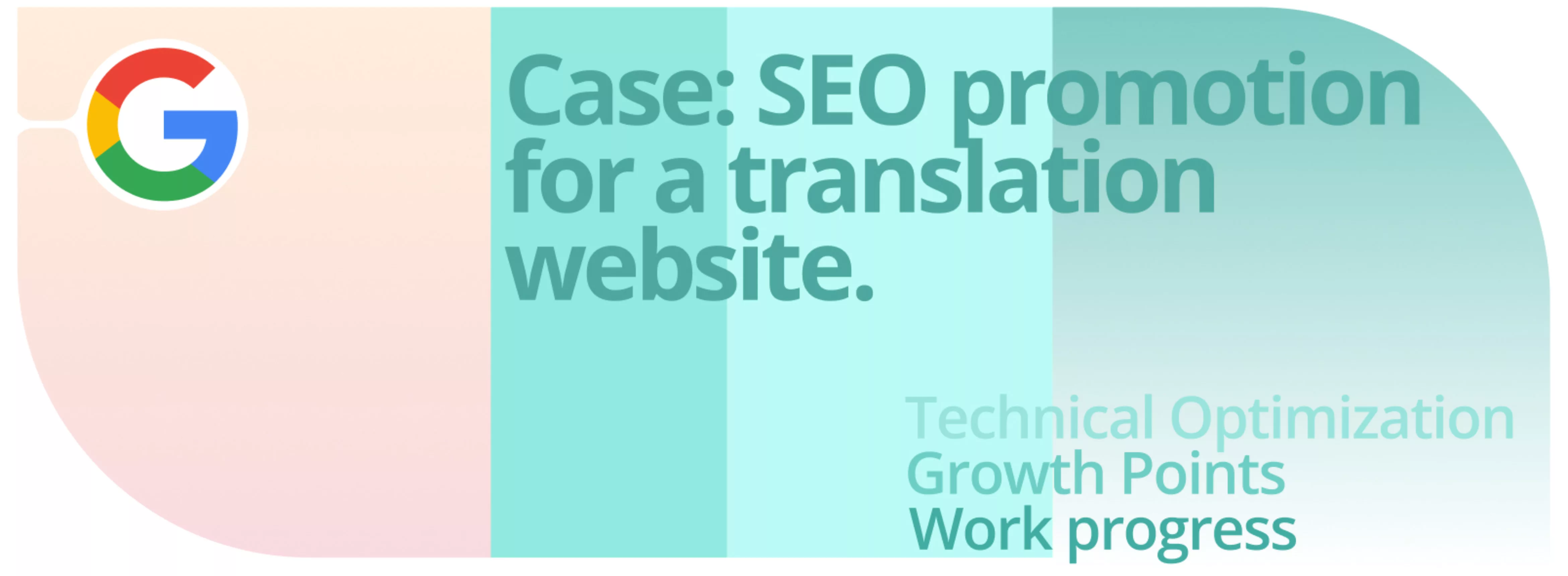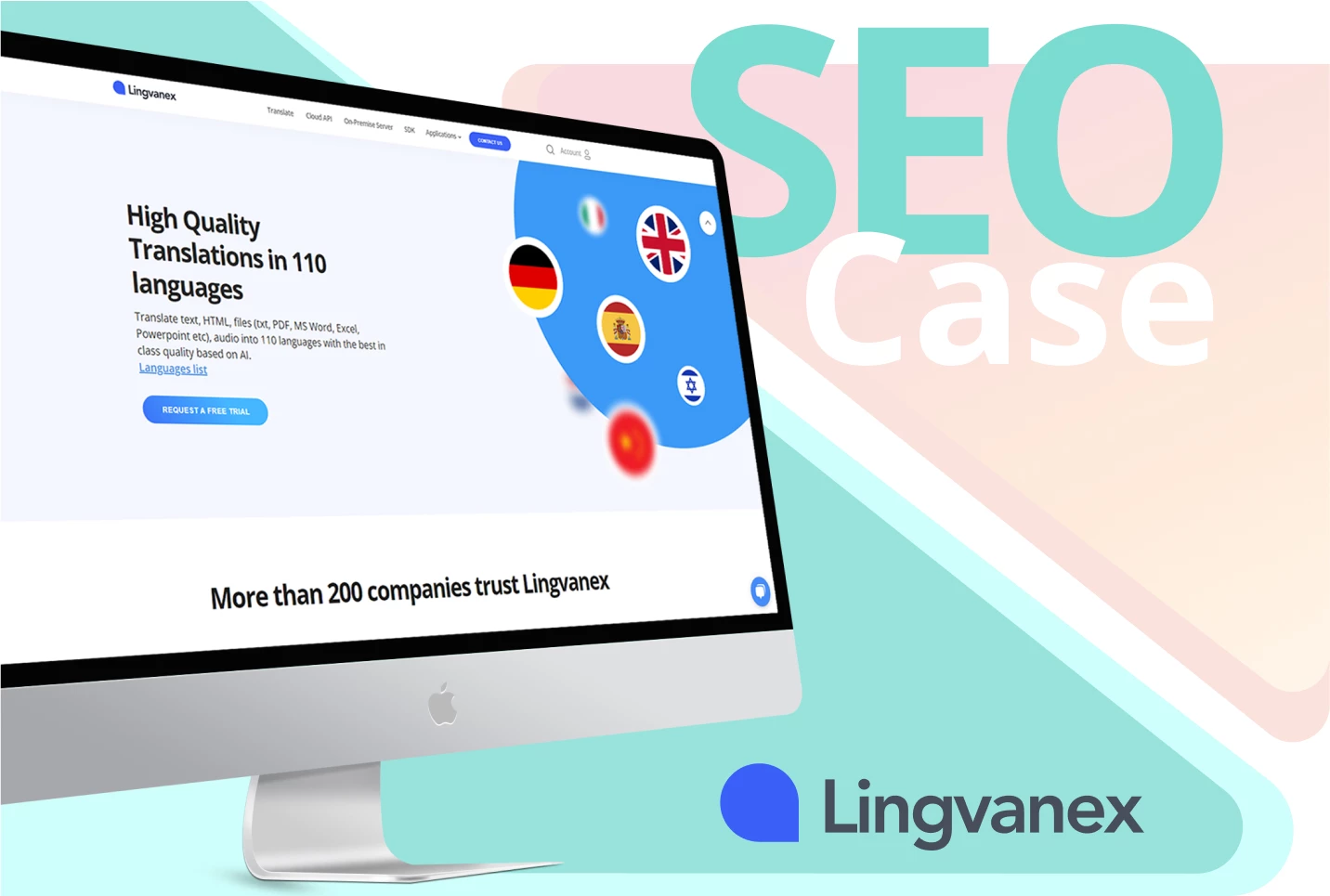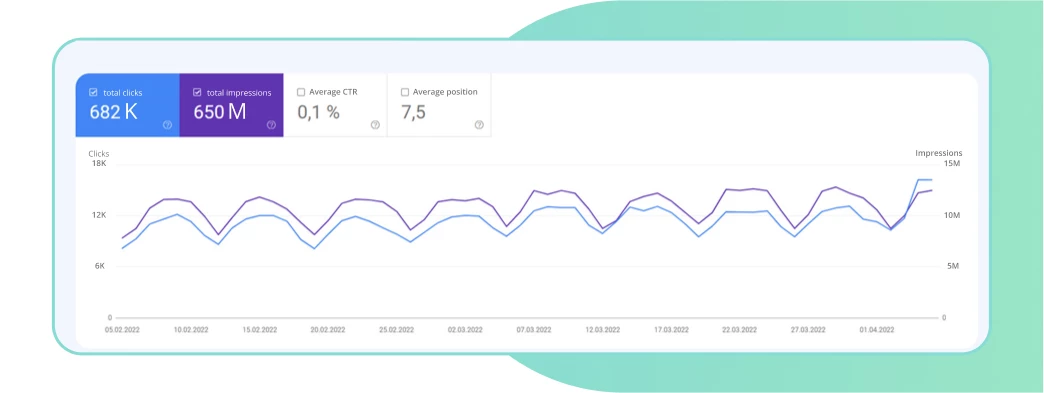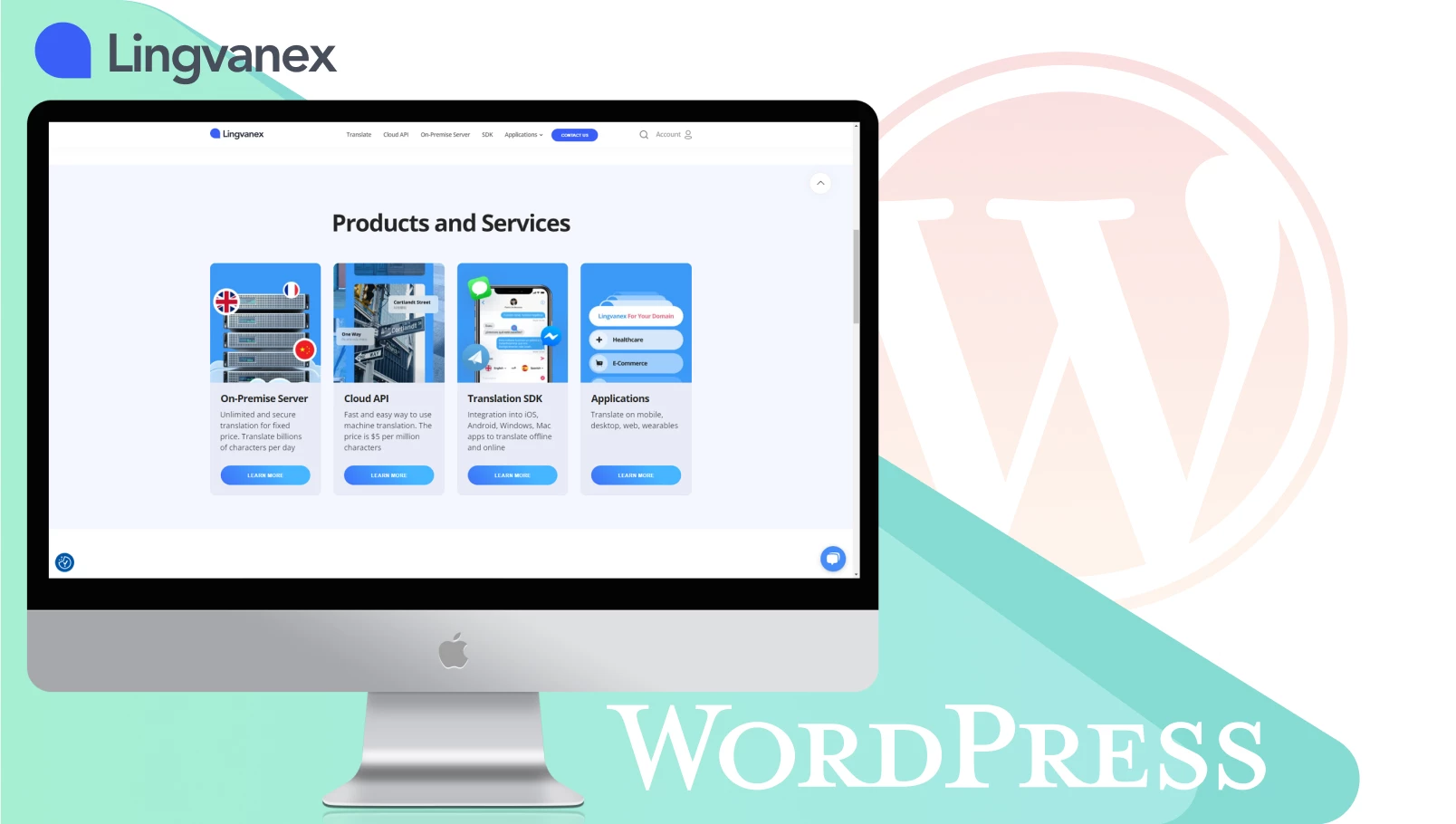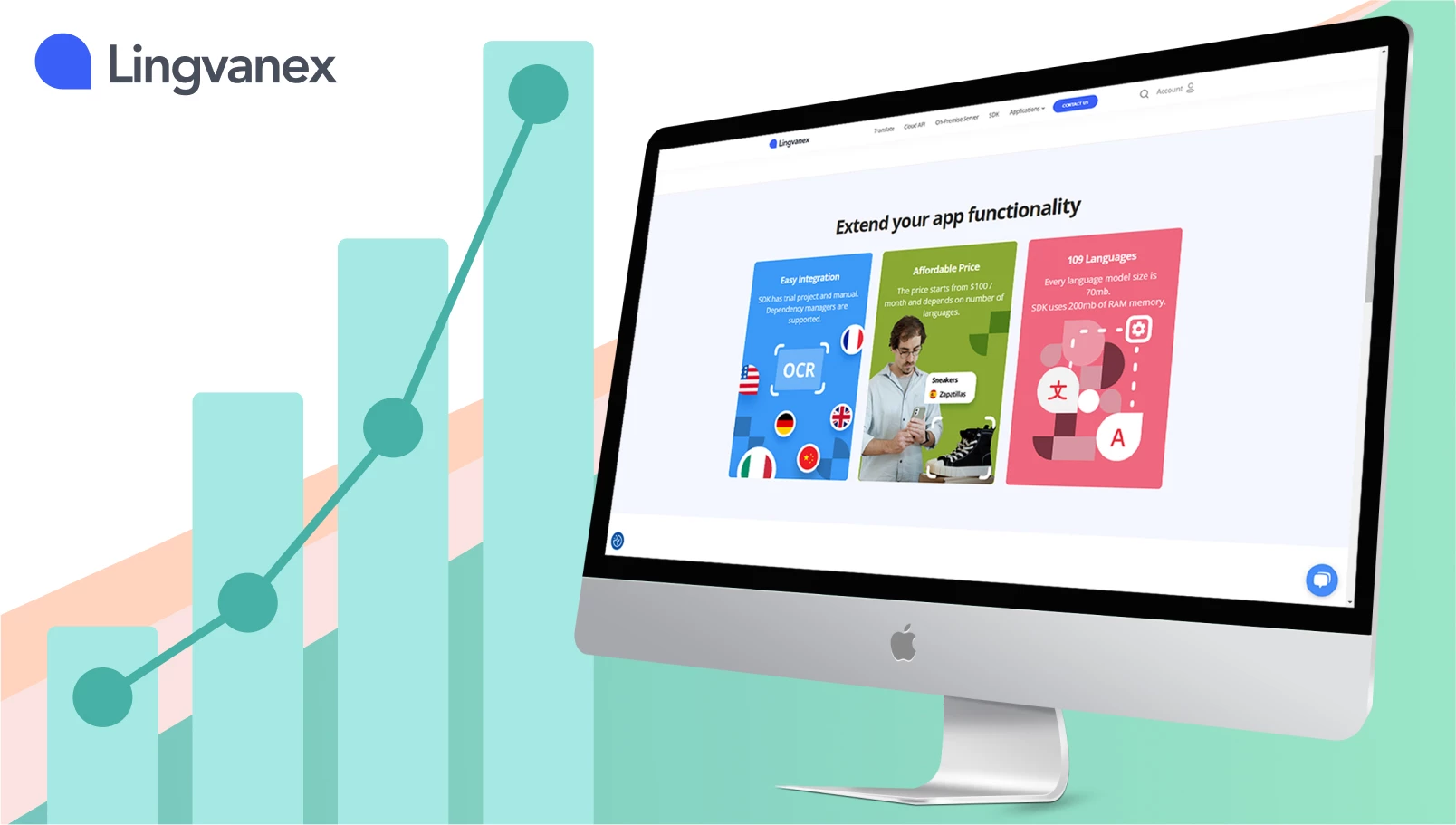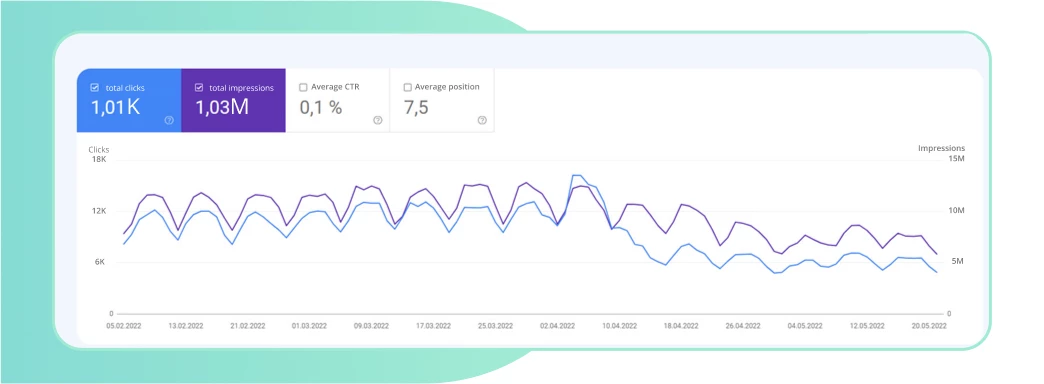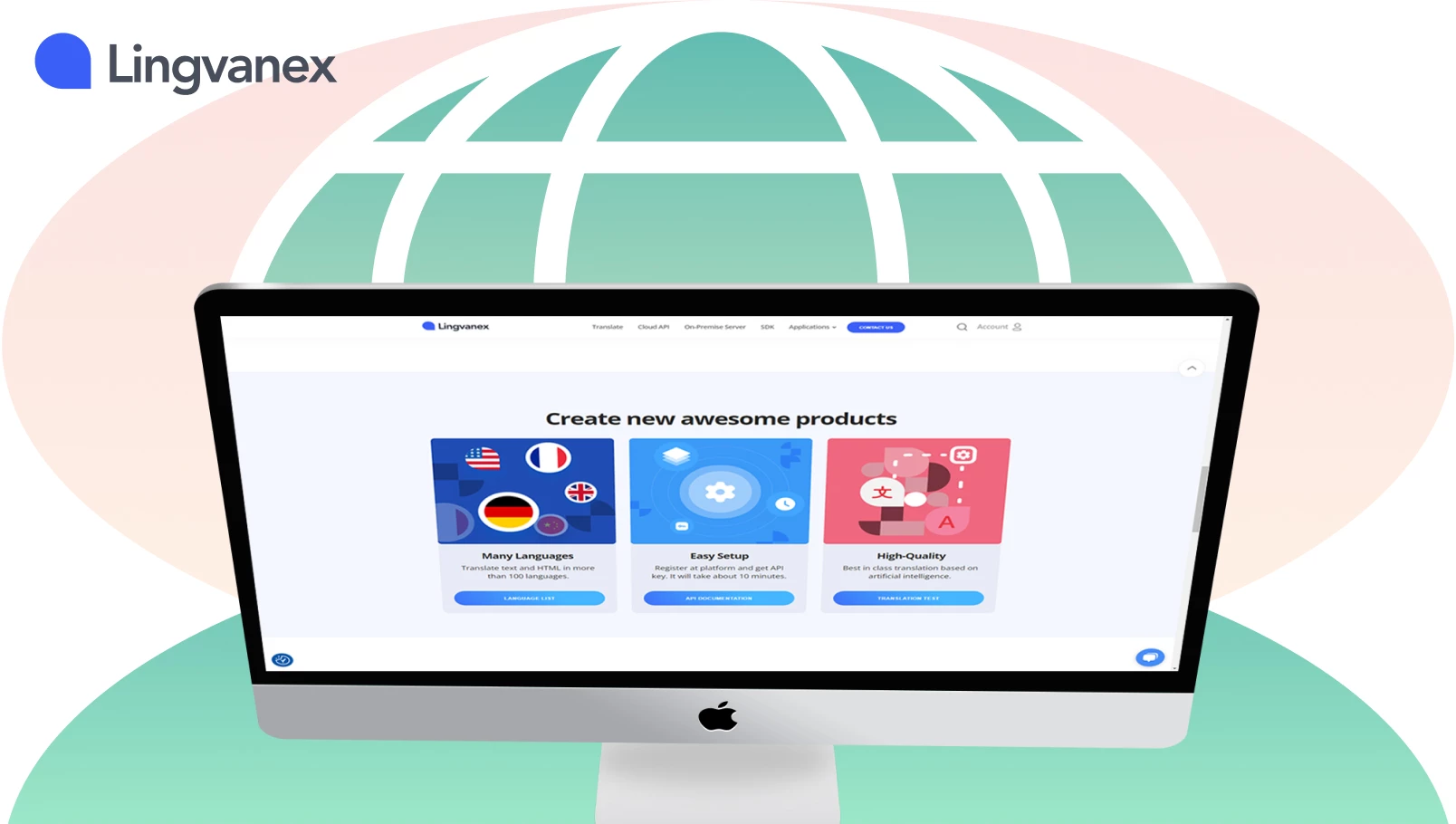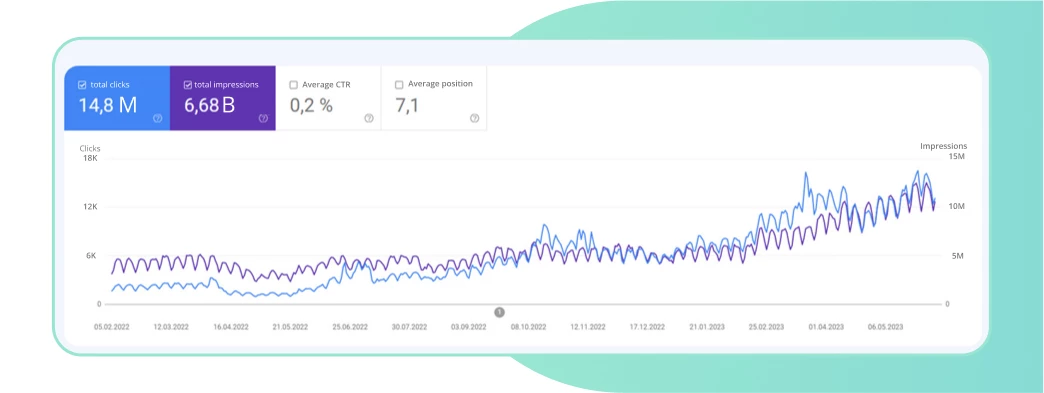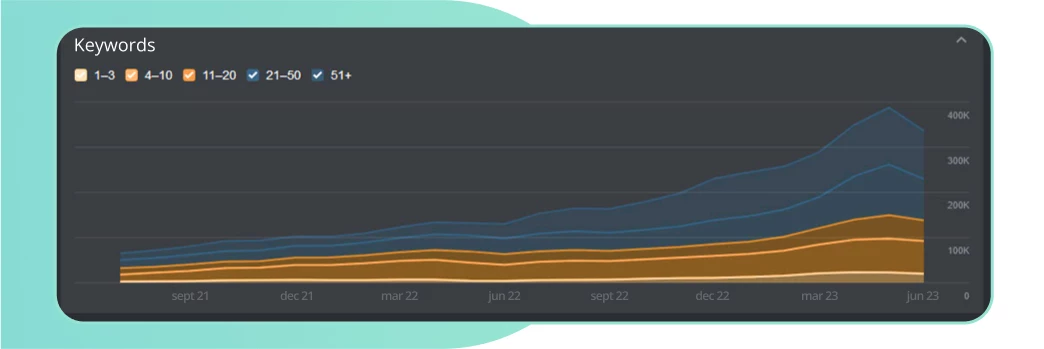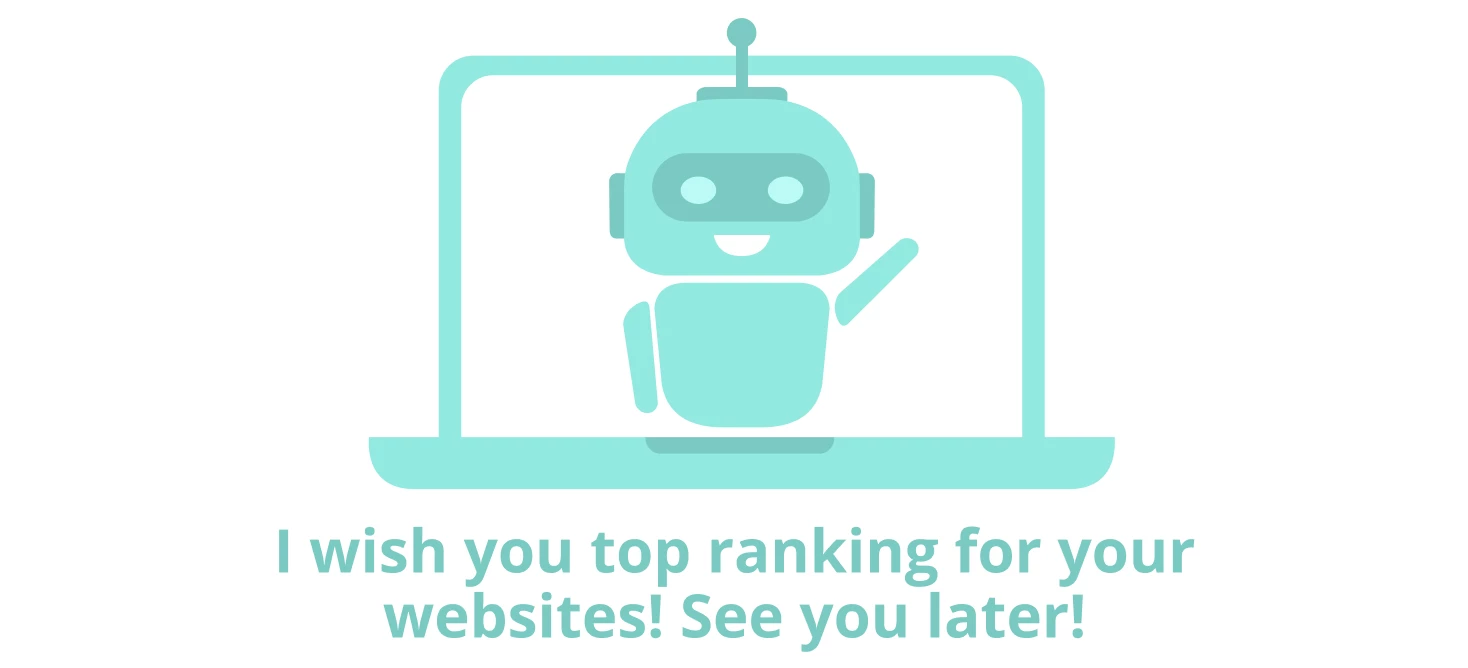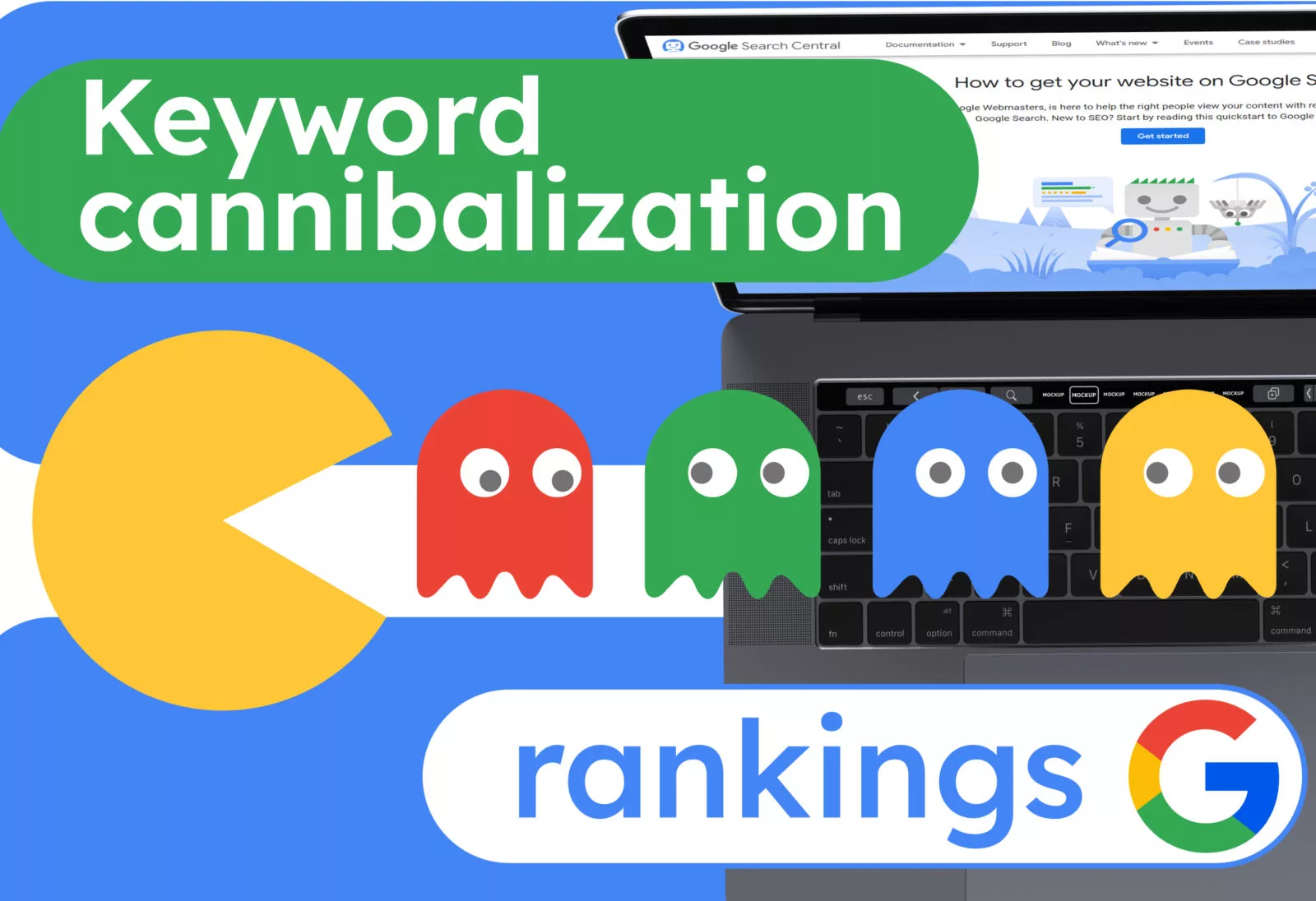Case: SEO promotion for a translation website.
Hello to all Search engine optimizers and everyone who has come to read a little about our favorite thing — SEO. Today I will write about one of our interesting cases and tell you about the technical optimization, progress, and achieved results.
I found a client when there was a need to translate multiple pages into several languages for one of our internal projects. There are already quite a few API solutions available on the market, so the search continued for quite some time. Eventually, I settled on Lingvanex. During negotiations with the service provider, they became our client.
The project structure consists of a WordPress frontend and custom backend development. The team created an excellent translation service but hadn’t considered SEO. Before we started our work, there was some organic traffic coming in. This is a case where search algorithms were trying to show people a good service that met their needs.
That is, we saw the SEO potential practically within the first 15 minutes of the audit before starting work.
Beginning of Work
Technical Optimization
WordPress is a good engine, but in terms of SEO, each CMS has its own set of features. We have been working with it for a long time and know which areas are weak.
The developers at Lingvanex are always busy developing the service side, improving translation algorithms. We did not have specialists or time for deep technical SEO optimization. Therefore, we went through the basic “problems” of WordPress, which we always “cure” by default:
- Removal of pages generated by JSON REST API;
- Disabling Emoji support;
- Removing unnecessary links from thesection;
- Removing .recentcomments styles;
- Setting up automatic Last Modified header assignment;
- Removal of user archives by year, month, day;
- Many other minor tweaks related to the features of WordPress.
From critical fixes, it is worth highlighting the absence of links with hreflang attributes on the site pages. The hreflang attribute informs search bots that certain pages of the site are localized versions of the same content.
More information about these attributes can be found in Google help. Ironically, on the translator’s website, there were no links pointing to translations of its pages.
Growth Points
The most obvious growth point was technical optimization. Fixing basic errors and adding hreflang attributes would already give a significant boost to growth.
We also didn’t overlook our competitors. Dealing with them is complicated — all major IT companies, including search engines, have translators, and we want to rank high in their search results.
However, there are also websites offering similar services or overlapping semantics. When analyzing them, we chose the simplest way to grow — by selecting the most popular words or phrases in different languages and creating landing pages with pre-set translations. For example, “translate window to English”, “translate horse to Spanish”.
The option of landing pages by words was planned to be used after implementing all the corrections and obtaining the first results.
Work progress
After clarifying all the nuances, we created a technical task for new landing pages, approved it with developers, and started waiting.
While waiting for implementation, we began to create a network of satellites and purchase additional external links, as the link profile was weak.
At this stage, an incident occurred: after creating pages according to our technical task, developers published several thousand new pages without our approval. This led to a sharp drop in existing search traffic.
The reasons for the traffic drop are related to the overall trust of the search engine towards the website. In addition to personal factors for each individual landing page, there are factors of trust towards the website as a whole.
To explain briefly: let’s assume that the trust towards the website is equal to 1. If the website has 10 pages, then each page receives 0.1 conditional units of trust. This is enough to surpass competitors and rank in the top 10 positions in search results.
But if we simultaneously add another 90 pages to the index, then each of them will receive only 0.01 conditional units of trust. This is no longer enough to surpass competitors and our pages lose their positions.
Of course, this is just our explanation of search engine behavior and it is not a fact that this mechanism works exactly as we described it. All our assumptions are based on experience. The main way to increase overall trust is to increase the external link mass.
We had to decide how to fix the error. We did not remove the published pages. Most of them were already in the index and were receiving impressions in search. With the client’s approval, we took a risk — we abandoned the rule of safe link building and increased the volume of link purchases. We also increased the number of satellites created per month.
There was a risk of being filtered, but firstly, it always exists. Secondly, thanks to the Disavow Links Tool, in case of problems, we could cancel their influence. That is, in the worst case, the client could lose a couple of months and a relatively small budget spent on buying links.
After several months of intensive external link building, traffic began to recover, and soon growth followed:
We have reduced the volume of purchases and returned to standard practice.
Currently, we are maintaining the satellite network and not interfering with the project’s development. The idea of creating landing pages with translated phrases has been put on hold due to the programmers’ heavy workload.
Recently, the client repeated the mistake of adding a large number of pages without our approval. However, thanks to our improved link profile, it did not have negative consequences and only increased keyword coverage.
Conclusion
External links are just as important as internal optimization. If a website does not have enough external links, the trust of landing pages will not be sufficient for high ranking. And new pages in the index will affect the ranking of old ones, as Google also looks at the site as a whole when ranking, not just a specific page.
Dear Friends, I hope our experience will be useful to you, and I will continue to share it with you. Thank you for reading and see you soon!
